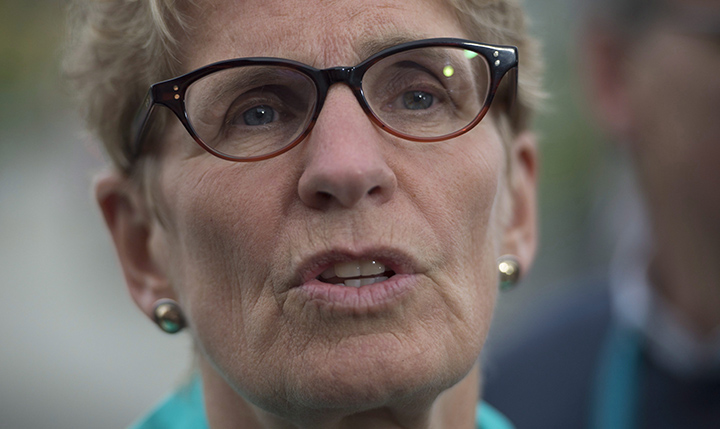TORONTO — Ontario’s auditor general is warning that advertising rules in the Liberal government’s proposed election finance reforms could give the governing party a political advantage.

Bonnie Lysyk told a legislative committee Thursday that the bill, as written, could limit advertising spending during elections and in the six months prior for third parties and political parties, but not the government.
“There is an advantage to the governing party if it is able to advertise on any issue at any time prior to an election and at any cost in the guise of government advertising,” she said.
READ MORE: Proposed Ontario political donation cap too high: ex-federal chief electoral officer
The auditor general has frequently criticized changes the Liberals made to government advertising rules last year, saying they force her to approve ads even if she thinks they are partisan.
The bill would limit third-party political advertising to $100,000 during elections and $600,000 in the six months leading up to an election, while political parties could spend $1 million in those six months. During the 2015-16 fiscal year, the Liberal government spent more than $40 million running more than 1,200 advertisements, Lysyk said.
Government ads can be run during elections if it is a time-sensitive message, if they are about a revenue-generating activity, or under any other conditions the government could add through regulations, Lysyk said.
READ MORE: Wynne says Liberals will close loopholes in political fundraising legislation
A spokesman said the government expects to bring forward amendments based on committee testimony, such as the auditor general’s.
The committee also heard Thursday from the heads of two teachers’ unions, who both called on the government to loosen proposed restrictions on third-party advertising.
There are currently no limits on third-party advertising. In the last general election in 2014, third parties spent $8.64 million, which amounted to 17 per cent of all election spending.
Unions were some of the largest third-party advertisers during the last election. The Working Families Coalition, known for its anti-Tory ads, spent $2.5 million during the campaign, with contributions from some of the province’s biggest unions.
READ MORE: Ontario Liberals to introduce legislation to tighten political fundraising rules
The Ontario English Catholic Teachers Association spent $2.2 million and the Elementary Teachers’ Federation of Ontario spent $1.3 million, records show.
Sam Hammond, president of the elementary teachers’ union, said there should be no restrictions on third-party advertising outside of an election period.
“Such a limitation is an unreasonable infringement on the right of organizations like ETFO to freedom of expression,” he said. “The right of citizens to discuss and debate ideas is a cornerstone of any democratic society and this right extends to third parties such as ETFO.”
Ann Hawkins, the head of the Catholic teachers’ union echoed ETFO’s recommendation, adding that she is concerned by the proposed new definition of what constitutes political advertising.
The bill would define it as advertising with the purpose of promoting or opposing any registered party or candidate, but also includes “advertising that takes a position on an issue with which a registered party or candidate is associated.”
“OECTA’s Speak for Children campaign for years has spent a great deal of time dealing with the issue of child poverty and its eradication,” she said. “Under this legislation, that would be captured and would be limited. That is unacceptable.”



Comments